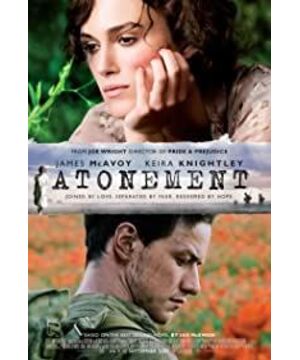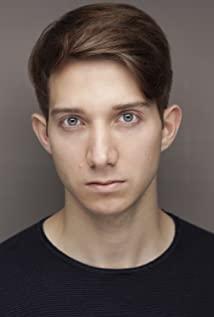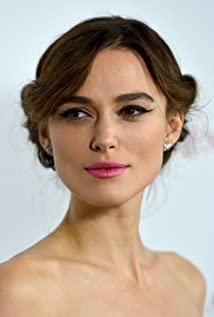Novel
2 The opening of the novel, about 1/3 of the whole book, is not easy to read. On a sweltering afternoon on a British hacienda, the plot stalled. Cecilia and Briony, the sisters, have a lot of thoughts, which are not framed and blocked by time, and seem dense and free. This feeling of disassociation is like pushing open door after door but still can't get out of a big airtight room. The two powerful tools of the plot, dialogue and action, are squeezed into it, and it flashes by inadvertently. The Guardian review argues that Atonement doesn't feel like Ian McEwan wrote it at first.
3 The novel has self-comments on the previous part of the brushwork. Briony's later novel was rejected, and the rejection letter said, Briony, are you using Virginia Woolf's technique too much? Well, it turns out to be a stream of consciousness issue. Briony's piecing together of perceptions, speculations and literary expressions make for a sultry afternoon that breeds sin. This part of the text is intertwined with a girl's confusion and misunderstanding of lust and her unspeakable jealousy and revenge. The novel in the novel and the novel itself, in the previous part, have actually become one. Ian McEwan's use of materials in this work, in various states, out of control or abnormal, ultimately serves his larger ideas throughout.
4 The chapter where Robbie is thinking about Cecilia in his little attic is nice. This beauty is twofold, any subtle feeling in this small world is related to his temperament, and is also influenced by his love and desire. The skylight in the bathroom can see the sky change throughout the day, from yellow to orange, and the gaze in his mind flows gently on Cecilia like light. Cecilia's appearance, identities, romances, past, future conjectures, then scattered poems, anatomy books, sketches, and stills from school drama performances. Both perspectives are written all the way down, and Robbie's image of romantic imagination, positivity, and a bright future is profound and endearing.
5 The sex part in the library is also good-looking, smooth and wonderful, and the various senses of the two people alternate, one after another. "Finally, they became strangers, their past was forgotten. They were also unfamiliar with themselves, forgetting who they were and where they were. They were outside of time, with no memory and no future."
Movie
6 "Atonement" movie The only expressions of love between the two in the library are actions and sounds. Moaning and intoxication are overpowering, and the movements are especially comical. Very disappointing, but I think it's an image flaw. The conflict between the two people by the fountain, the deliberate long-term indifference, the past events of the Oxford campus, and the more distant childhood and childhood memories can be gathered together through time and space in the text, and then easily resolved, like a dark cloud suddenly dispersed. . Movies can't do that. If you really need it, you will need more space.
7 The jump between chapters in the movie is the same as in the novel. simply. The film is faithful to the structure of the novel, especially the transition between the different scenes. The movie adds the scene where Briony was a nurse when she deliberately fell into the water to let Robbie save her, and Briony's conversation with the nurse that he had a crush on Robbie. I don't recall any of these in the novel. Of course, this can better explain Briony's psychological motivation for insisting that his sister's lover is a rapist.
8 Among the conflicts and entanglements in the novel, the relationship between the two sisters touched me very much. Although the story of Briony finding her sister later was fictional, some of the conversations about the reunion of the two after many years, to me, had a lot of human tension. These are not felt in the movie.
9 The New York Times commented that the film did not show the close connection between the fate of the characters in the play and the historical events they suffered, nor did it forcefully portray the spiritual and physical suffering of the hero and heroine in the separation of war. And I think, having Robbie and Cecilia as the hero and heroine was the intent of the movie, it's a love movie, isn't it? The story of a loving wife in her hometown looking for her husband to return in a battle of beacon fires should belong to a work like "Cold Mountain". Isn't it cliché for "Atonement" to repeat the same mistakes? In the novel, isn't Briony's mental journey as a writer richer? She is a person who seeks redemption all the time, and finally borrowed her pen to create a talented and beautiful ending. Even if she has an omniscient perspective and ability in writing, she can only complete a hypothetical atonement and seek a process leading to atonement. God is the object of atonement, and in this story, he doesn't tell Briony what to do.
10 Finally, the long shot of the Steadicam movement of the Dunkirk retreat, 5 and a half minutes, is wonderful. Lenovo went, and a 90-minute shot of Russian director Alexander Sokolov's "Russian Ark" in 2002 is still fresh in my memory. If the scene of the Dunkirk evacuation is "stunned and exclaimed several times", there are two long scenes in Mexican director Alfonso Cuaron's "Children of Man" in 2006 that can be said to be incredible and breathtaking. Well, I couldn't help but take it out and read it again.
View more about Atonement reviews











